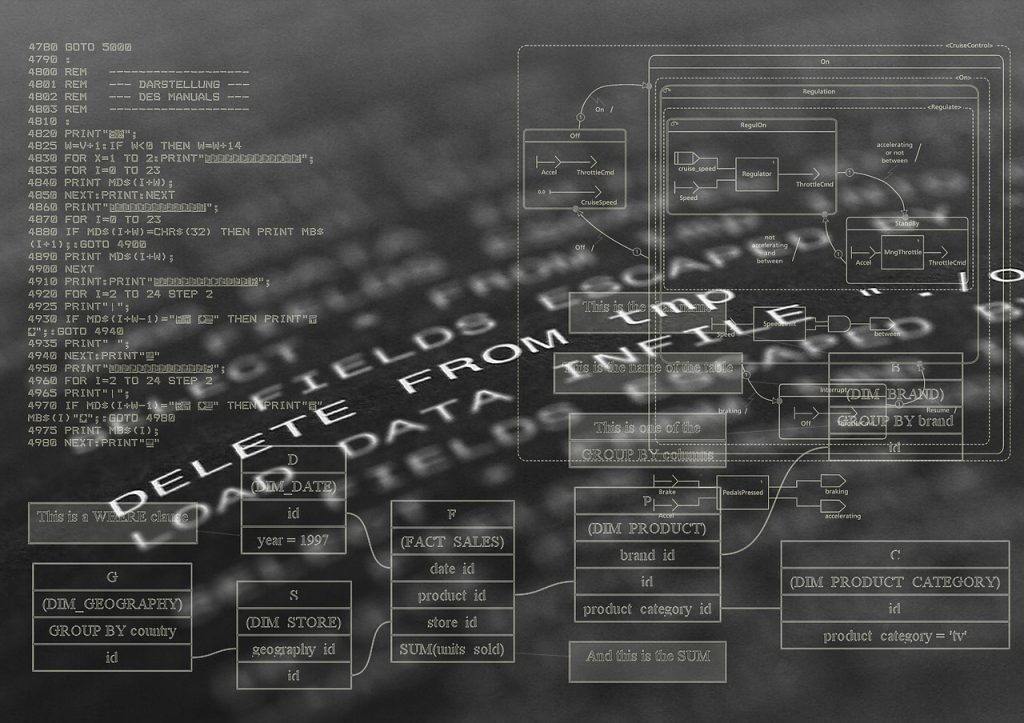
Right of withdrawal concerning the purchase of video games
*This is an AI-powered machine translation of the original text in Portuguese
The right of withdrawal is guaranteed by the Consumer Protection Code (CDC, Law No. 8,078/1990) [1]. It was included in the list of consumer rights in 1990, before the rise of the internet. Today, we live in a virtual world, a virtualization intensified by the Sars-CoV-2 pandemic. The entertainment and gaming industry is not unfamiliar with this trend, having seized various opportunities on the internet. In this context, questions arise about the application of the already classic right of withdrawal in disruptive cases involving the purchase of digital products, unforeseen by the authors of the CDC, including its application in the world of video games.
The right of withdrawal According to Article 49 of the CDC [2], the right of withdrawal gives consumers the possibility to withdraw from a product or service contracted outside the commercial establishment within a period of seven days. Withdrawal is an unilateral right, meaning that it is sufficient for the consumer to indicate their withdrawal for the contract to be terminated, and the paid amounts to be refunded with monetary adjustments.
"Withdrawal" can be defined as the recognition that "[the] manifestation of will was not expressed in an absolutely conscious and undoubted manner. On the contrary, the consumer acquired the product and only upon delivery realized that the merchandise would not meet their legitimate expectations" [3]. In this sense, according to doctrine and jurisprudence, the right of withdrawal has two independent but interrelated grounds: informational deficit and reflection deficit. It is enough for one of these to be verified for the right of withdrawal to be applicable.
The informational deficit consists of the lack of access to information that may be of interest to the consumer (such as size, color, model, durability, etc.). However, the mere availability of information does not necessarily eliminate this deficit [4]. To remedy the problem, the consumer must, in addition to having access to the information – an essential step – be able to understand how it translates into reality. This is often only possible when the consumer has direct contact with the product or service, holding it in their hands to analyze it at will. This leads to the possibility of withdrawal from purchases made outside the establishment (phone, internet, social networks, etc.), as the lack of physical access to the item to be purchased limits the ability to gather and assimilate information properly [5].
The reflection deficit, on the other hand, corresponds to the difficulty of subjectively processing the intended purchase. Naturally, proper reflection depends on the information received, so an informational deficit logically implies that the consumer does not have access to the minimum elements for reflection. Despite this, the perfect availability of information does not prevent a potential deficit in reflection. This deficit can have various causes, including impulse purchases, pressure from sellers, peer pressure, the use of abusive advertising, or any other form of harassment and/or coercion.
Over the years, doctrine has clarified the meaning of these two criteria. Nevertheless, their application in the digital world, including in video games, can be complex. Let's consider the minimum viable product (MVP) [6] of the video game commerce system, in which virtual coins (coins) are acquired with real money, and once obtained, the coins are used for in-game purchases (consumable items, persistent items, aesthetic changes, etc.). Several questions arise from this scenario. Is the right of withdrawal applicable to this type of purchase? If so, how is it applied? Can you withdraw from the purchase of coins, in-game purchases, or both? How to evaluate information and reflection deficits? Are there ways to mitigate them?
Withdrawal applied to video games Taking a strictly literal reading of Article 49 of the CDC, the fact that in-game purchases occur "outside the commercial establishment" would already justify the application of the right of withdrawal. However, while a literal interpretation is one of the established methods of legal hermeneutics, one cannot ignore the teleology and history of the withdrawal institute. Thus, one must consider not only whether the contract was consummated outside the establishment but also the good faith of the consumer and whether there was indeed an informational or reflection deficit.
Regarding good faith, it is evident that the consumer cannot exercise withdrawal to gain an undue advantage, which constitutes an abuse of right. For example, if a player acquires virtual coins and uses them to purchase in-game items, the initial purchase of virtual coins is perfected. That is, the player has already demonstrated, through their conduct, that they wanted to acquire them, allowing the game to reject their request for withdrawal of the initial purchase. However, it could still be argued that withdrawal of in-game items purchased could be allowed in some cases. If, however, the player uses a purchased item and later tries to exercise withdrawal, even within the timeframe, this request could also be denied due to the perfection of the purchase. The extent of use that perfects the purchase of in-game items will depend on the specific case.
As for deficits, within video games, the informational deficit occurs less frequently since many games allow access to a preview of the item to be acquired. For example, there are games that provide a certain amount of their virtual currency right from the start. In this case, everyone has access to virtual currency and how it works from the beginning. Thus, it is very difficult to recognize any informational deficit in subsequent purchases of virtual coins because the player has already had access to the same item, even if in smaller quantities.
Sometimes, in-game items can be tested beforehand, usually in a controlled environment. This practice is similar in the physical world to trying on clothes in a store's fitting room. Ultimately, the possibility to "test" a digital product before actually acquiring it may eliminate informational deficits that would justify potential withdrawal. Video games have the potential to drastically reduce their withdrawal risks through a well-designed sales system, an option that is difficult to achieve for online purchases of physical products. Therefore, adopting strategies that allow players to effectively familiarize themselves with the digital products they intend to purchase creates greater legal certainty in video game transactions, as well as greater player satisfaction with their purchases.
However, there is still the issue of a potential reflection deficit in purchases involving video games. For example, particularly in the world of online games, it is common for certain items to be offered in limited time or quantity, such as promotional or themed items. Thus, players are encouraged to quickly acquire these limited goods without much reflection, under the risk of not being able to obtain them later. In these cases, is it reasonable to argue that external elements disturb, even involuntarily, the consumer's peaceful consideration in their purchasing process? If so, can such external pressure justify the right of withdrawal?
Furthermore, in gaming environments, novice players often mix with experienced players who are more advanced in the game. Thus, a subjective element to consider is peer pressure. In order to avoid falling behind the rest of the group, a novice player may feel compelled to impulsively purchase digital products to try to catch up more quickly. Additionally, groups/alliances among players are not uncommon, which can create an expectation that all group members acquire certain items. This dynamic of peer pressure is exacerbated by the aforementioned time or quantity limitations on digital items.
Another aggravating factor is the potential addictive nature of some games, which may have elements similar to gambling. In the case of loot boxes, for example, players are encouraged to continue acquiring digital products in an attempt to try their luck and obtain better items. Without getting into the legality of this practice, it is worth noting the potential formation of a reflection deficit in players, which may warrant companies providing consumers with the right to withdraw, within the specified timeframe, from purchases made impulsively in these games.
Moreover, many games/apps often pressure players themselves. Companies frequently use push notifications, landing pages, in-mail, pop-ups, and other notification features to constantly encourage users to buy new items and take advantage of the latest promotions. The constant use of this communication resembles the figure of the "persistent salesman" who repeatedly pesters the buyer until they are convinced, out of exhaustion, to purchase the product. The absence of a physical person applying this pressure should not exempt this from being considered an abusive practice.
Furthermore, if a video game uses advertising that can be classified as abusive under Article 37, paragraph 2, of the CDC [7], and the regulations of Conar (National Council for Advertising Self-Regulation) [8], this would also be sufficient cause for recognizing the right of withdrawal. According to doctrine, advertising is considered abusive whenever it takes advantage of the consumer's vulnerability to offer products [9].
For video games with child and adolescent players, there is also the possibility that advertising takes advantage of their lack of judgment and experience. In these cases, an analysis under the Child and Adolescent Statute (ECA) should also be considered when determining the abuse of advertising.
Conclusion There is the possibility of applying the right of withdrawal to purchases made in video games. Information deficits, although possibly present, are easily mitigated, depending on a well-designed sales system. Regarding the reflection deficit, a case-by-case analysis should be conducted to determine if there are elements that disturb, even inadvertently, the consumer's peaceful consideration in their purchasing process.
If the right of withdrawal is applicable, the gaming market should seek to implement mitigating measures. Particularly, efforts should be made to address the prevalent reflection deficit in this market by examining the factors that influence players' decisions, such as the existence of undue pressures.
If this points the way forward in advancing the debate on this controversy at the national level, it is important to remember that video games are often international. Thus, those operated by foreign-based companies could, for example, refuse to comply with the right of withdrawal guaranteed by the CDC. This internationalized perspective of the issue warrants a separate analysis considering the specifics of transnational interaction between entities and the interplay of applicable laws in each specific case.
[1] Link to the CDC: http://www.planalto.gov.br/ccivil_03/leis/l8078compilado.htm [2] Art. 49 of the CDC: "The consumer may withdraw from the contract within 7 days from its signing or from the receipt of the product or service, whenever the contracting of the supply of products and services occurs outside the commercial establishment, especially by telephone or at home. Sole paragraph. If the consumer exercises the right of withdrawal provided for in this article, any amounts paid, in any way, during the reflection period, shall be refunded, immediately, with monetary adjustments." [3] Consumer's right to cancellation: hermeneutical challenge and hard cases Revista de Direito do Consumidor | vol. 105/2016 | p. 203 - 235 | May - Jun / 2016 DTR\2016\20383, p. 4. [4] Consumer's right to cancellation: hermeneutical challenge and hard cases Revista de Direito do Consumidor | vol. 105/2016 | p. 203 - 235 | May - Jun / 2016 DTR\2016\20383, p. 5. [5] Consumer's right to cancellation: hermeneutical challenge and hard cases Revista de Direito do Consumidor | vol. 105/2016 | p. 203 - 235 | May - Jun / 2016 DTR\2016\20383, p. 4. [6] Minimum Viable Product or "Minimum Viable Product" is the term used in entrepreneurship to refer to the simplest model that a product or service can adopt to be launched on the market with the least amount of effort and development. [7] Art. 37. Misleading or abusive advertising is prohibited. [...] § 2. Discriminatory advertising of any kind is abusive, as is advertising that incites violence, exploits fear or superstition, takes advantage of the deficiency in judgment and experience of children, disrespects environmental values, or is capable of inducing the consumer to behave in a harmful or dangerous manner to their health or safety. [8] http://www.conar.org.br/ [9] MARQUES, Cláudia Lima; BENJAMIN, Antônio Herman V.; MIRAGEM, Bruno. Comentários ao Código de Defesa do Consumidor. 4th ed. São Paulo: Revista dos Tribunais, 2013. p. 864: "Abusive advertising. Definition: Abusive advertising is, in summary, unethical advertising that violates the consumer's vulnerability, basic social values, and society as a whole."
*Coauthored with Bruno Blum Fonseca. Originally published in Conjur.
**Image Sketchepedia.



